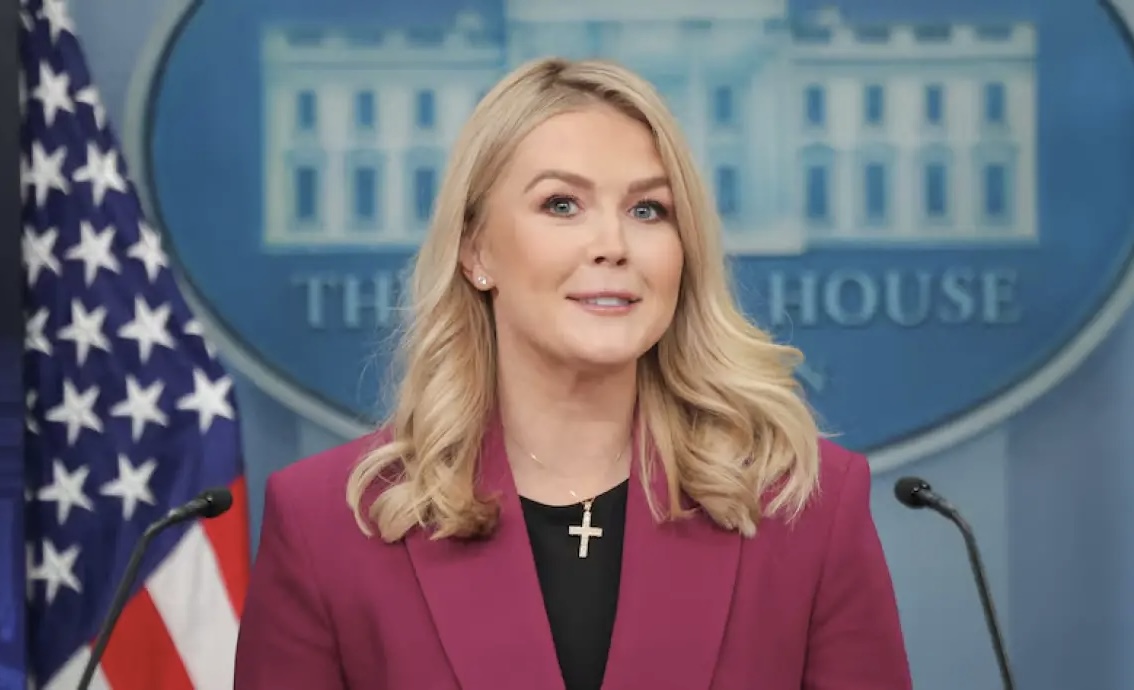Karoline Leavitt Responds: Judge Boasberg’s Deportation Ruling Leads to Calls for Accountability
In a recent press briefing, White House Press Secretary Karoline Leavitt expressed strong criticism of U.S. District Judge James Boasberg after his ruling to halt flights carrying deported Venezuelan gang members. This decision has sparked significant controversy, particularly among some Republicans who see it as an overreach by the judiciary into executive authority, especially regarding immigration enforcement.
The issue centers on deportation flights under the Trump administration aimed at removing suspected members of the Venezuelan gang Tren de Aragua. Judge Boasberg issued a temporary injunction halting the flights, which had already begun under the Alien Enemies Act, a law that gives the president authority to deport foreign nationals involved in criminal activities that threaten national security. Leavitt argued that the judge’s order undermined the President’s constitutional authority and national security efforts.
Leavitt remarked that the judge was effectively challenging the President’s power to deport individuals considered threats to the country, framing his decision as an interference with national security operations. She argued that the flights had already departed before the order was made, making it impractical to reverse the action, and expressed concern that such rulings complicate immigration enforcement processes.
Beyond her legal defense, Leavitt also questioned the judge’s impartiality, noting his previous appointment by President Obama and his wife’s political donations to Democratic candidates. These remarks were part of her broader criticism of what she described as judicial activism that challenges the administration’s ability to enforce laws passed by Congress and supported by voters.
The fallout from Judge Boasberg’s ruling has prompted calls for accountability. Texas Rep. Brandon Gill introduced articles of impeachment against the judge, accusing him of interfering with national security operations and undermining the President’s ability to uphold immigration laws. Gill argued that Boasberg’s decision was an example of judicial overreach and a barrier to the President’s ability to act on behalf of the American people.
President Trump also voiced his discontent on social media, denouncing Boasberg’s ruling and criticizing the judicial system’s role in limiting the President’s authority. Trump’s comments have intensified the political debate over the scope of judicial power, with some arguing that such actions set a dangerous precedent by allowing judges to block executive orders and disrupt policy initiatives.
In response to the legal challenges, the Trump administration has maintained that its actions are consistent with the law, emphasizing the President’s clear authority under the Alien Enemies Act to deport individuals who pose a national security threat. Leavitt reiterated that the flights were conducted in compliance with legal mandates and that the timing of the judge’s order rendered it ineffective. She also expressed confidence in the capabilities of immigration enforcement agencies like ICE and Customs and Border Patrol, which she argued are working in alignment with the President’s directives to protect the country.
The dispute between the executive and judicial branches highlights a larger constitutional debate over the separation of powers. The Trump administration contends that judicial intervention in executive decisions, particularly in matters of immigration and national security, undermines the President’s ability to act decisively on behalf of the nation. On the other hand, critics of this view argue that judicial oversight is necessary to ensure that executive actions align with constitutional principles and protect individual rights.
The push to impeach Judge Boasberg is part of a broader conversation about the role of the judiciary in a democracy. While the administration and its supporters view judicial rulings as sometimes overstepping, others believe that checks on executive power are essential to preventing abuses and protecting the rule of law. The conflict raises important questions about the limits of judicial authority and the potential consequences of undermining judicial independence.
The developments surrounding the deportation flights and the legal challenges they face are indicative of broader tensions between the branches of government. This case serves as a reminder of the complex relationship between the executive, legislative, and judicial branches, particularly in an era marked by deep political divisions.
As the situation continues to unfold, the resolution of this dispute may have long-lasting implications for the balance of power in the United States government. The ongoing debate will likely shape future discussions on the role of the judiciary and its ability to check executive actions, especially in politically charged areas such as immigration and national security. The outcome of this case will likely influence how the public and lawmakers view the relationship between the courts and the executive branch in the years to come.
